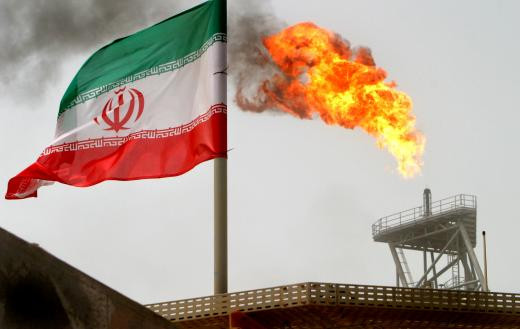The global price for oil rose by two percent on Tuesday as Washington's economic sanctions continue to squeeze the Iranian crude export industry while reports of falling domestic crude inventories prompted supply concerns.
Since July when the White House announced its decision to re-impose economic sanctions on Iran, oil traders have been expressing their concerns on the looming scenario of oil supply shortages the moment exports from one of the largest OPEC (Organization of Petroleum Exporting Countries) are cut off.
As previously mentioned in this report, Trump's economic restrictions on Tehran come in two waves, with the first already taking effect last month. Iran is now banned from using US dollars for its trading activities while the sale of its gold and precious metals were nixed in the global market.
The second wave, the biggest between the two, is due to hit this November and will particularly cripple Iran's bread and butter - oil.
With the economic doomsday coming closer than ever for the Islamic Republic, traders were already taking the initiative to raise premium prices on the oil exports and this trend will likely to continue.
According to Reuters, Brent crude futures, for example, rose by 2.2 percent or USD$1.69, pricing each barrel at USD$79.06.
America's West Texas Intermediate (WTI) crude futures, on the other hand, settled at a much steeper 2.5 percent or USD$1.71, higher at USD$69.25 per barrel.
Industry data cited from the American Petroleum Institute (API) reflects the US crude inventories plunging by 8.6 million barrels last week which is way beyond the initial projection of 805,000-barrel decrease.
As stipulated by Australia's Rivkin Securities head analyst, William O'Loughlin, the oil price hike happened overnight and this clearly follows after API released its market findings, according to The Star.
Official weekly government data, as added by the media outlet, is slated to be published by the US Energy Information Administration (EIA) this coming Wednesday.
The Iranian Economic Sanction
In light of Trump's takedown on the Iranian coffer, Washington has been calling out for its allies including South Korea, Japan, and even India, to reduce its oil importation from Iran. Several other Asian countries are now reportedly following suit.
To fill in the slack that the Iranian oil export left, Trump, through US Energy Secretary Rick Perry, encourages other major industry players like Saudi Arabia and Russia to pump up their respective oil production.
China and Iran
On the part of China, the Xi Jinping administration made it clear that it won't cut off its purchasing contracts with the embattled Islamic country.
As specified in this report, Beijing is more determined than ever to carry out its trade deals with Iran as of the moment and for the years to come.






